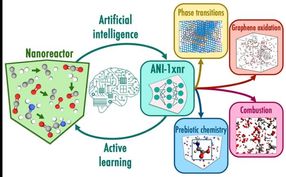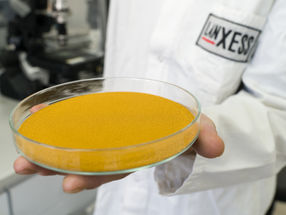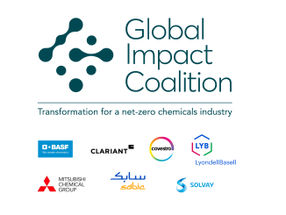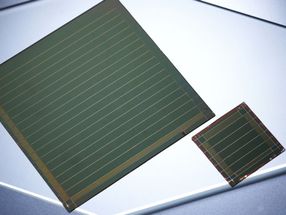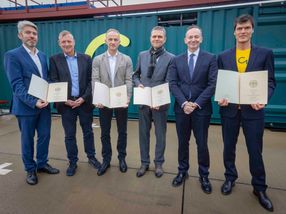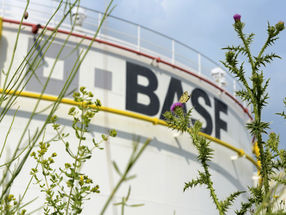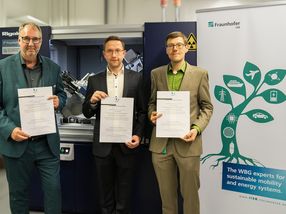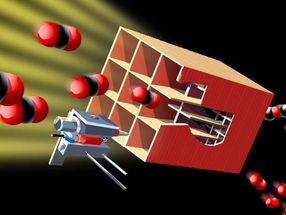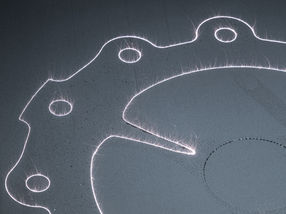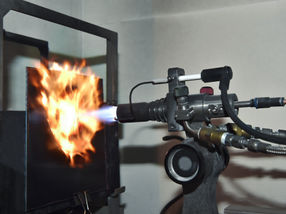Co-branding alliance between uvex Sports and Bayer AG
Makrolon for sports goggles, visors for motorcycle and cycle helmets
Sport and leisure article specialists build on high-tech plastic from Bayer
Skiing goggles from uvex give you all-round protection while skiing or snowboarding. They filter out harmful UV radiation, and have a scratchproof coating, whilst the super anti-fog coating on the inside of the lenses means that they will not mist up.
Leverkusen – Positive experiences after several years of using Makrolon®, the polycarbonate from Bayer AG, recently led to the creation of a co-branding alliance between Bayer AG and uvex Sports GmbH & Co. KG, based in Fürth, Germany. Selected sports articles from uvex carry the inscription "Made of Makrolon – high-tech material from Bayer", and this acts very much as a hallmark of quality.
The company name uvex is synonymous with a tradition that goes back more than 75 years, and with over 20 million pairs of goggles sold every year, uvex has become world market leader in industrial eye protection and a successful trendsetter when it comes to sports goggles and sunglasses. The name uvex emerged in the early 1960s when it was the name of a successfully positioned brand of sunglasses. uv-ex = ultraviolet excluded. Uvex Sports, one of four internationally active companies that form part of uvex Winter Holding GmbH & Co. KG, produces skiing goggles, cycling, motorcycling and sports goggles, as well as helmets for skiing, cycling and motorcycling and clothing for motorcyclists.
Sports goggles: variety par excellence
Initially at least, the co-branding agreement will apply to the uvex Sports' range of goggles, which are fitted with supravision® lenses made of Makrolon. This particular Bayer plastic is as transparent as glass, but much lighter and its high impact strength means that it is virtually unbreakable.
This has been proven during stone impact testing of Makrolon lenses in the laboratories at uvex, simulating the impact of stones travelling through the air at over 400 kilometers per hour. Its excellent properties and the purity of the product enable uvex goggles to be produced that offer crystal-clear optical quality and also come with stable and suitably tinted lenses.
For wearers of goggles, an important factor is how they adapt to varying light conditions. And this means choosing the correct lens color in respect of transmission and absorption. Sven Bach of uvex explained the significance of the filtering properties: "An orange-tinted lens, for example, cuts out the blue portion of the spectrum that's responsible for blurred vision. The orange color, that we at uvex call laser gold, has the effect of increasing the contrast. This means that ski and sports goggles can be adapted to the various lighting conditions encountered at different times of the day. One feature that is common however to all uvex goggles – regardless of whether they are tinted or crystal clear – is that they also filter out harmful UV radiation." In addition, supravision lenses are treated with a hard coating (super anti-scratch), which gives them their abrasion and scratch-resistant surface, whilst a super anti-fog coating on the inside of the Makrolon lenses guarantees that they will not mist up. All in all, these features mean that Makrolon lenses generally last five times longer than traditional lenses.
Greater safety with helmet visors made from Makrolon
Also when it comes to producing visors for motorcycling helmets, uvex swears by Makrolon. Peter Klaus from helmet specialists uvex says: "Visors must absolutely always be scratch-resistant on the outside and have an anti-fog coating on the inside to prevent them from misting up. On the one hand, the light from oncoming traffic must not be scattered or cause the rider to become dazzled, whilst on the other hand misting up caused by the rider's own breath should not obscure his view. For many years now, both of these hi-tech coatings, each in itself completely different, have represented the state-of-the-art at uvex. When combined with the high-quality polycarbonate from Bayer, they give rise to a product that also boasts anti-static properties and affords additional protection against harmful UV radiation.
The ability of the anti-fog coating to absorb moisture from the wearer's breath without causing loss of vision and to hold it in a similar way to a sponge meant that in the latest helmet tests carried out by the German "Motorrad" magazine, the uvex helmet was once again the winner in the "Vision" category. The V1 helmet from uvex also achieved the best overall result in the tests.
Another absolutely outstanding development in the field of motorcycling helmets are the uvex frameless double-layer visors. The outer layer is made from Makrolon, whilst the inner visor consists of a material with a super anti-fog coating. Double-layer visors separate the cold air outside from the moist, warm air on the inside, thus preventing condensation and giving the wearer a clear view of the road.
Safe, comfortable, lightweight cycle helmets that look great
Makrolon is also uvex's first choice of material when it comes to making cycle helmets. Stefan Weiler of uvex explains: "A cycle helmet must protect you if you fall, keep your head cool and offer a high degree of comfort to the wearer whilst being very lightweight. It should also look good." These are high standards indeed, and as the outstanding results obtained at the "Stiftung Warentest", a product-testing organization in Germany, prove, uvex helmets do them justice, but this is only possible thanks to the use of highly advanced materials. As Bayer plastics specialist Kurt Moser confirms, the microshell outer layer "made of Makrolon" is impact-resistant, cushioning, practically unbreakable and can be produced in a range of attractive designs.
This particular co-branding alliance between uvex and Bayer is one of a number of successful collaborations between Bayer and various users of this particular hi-tech plastic: The Dutch specialist company MMore International BV relies on Makrolon for the production of CD-Rs and DVDs. BNL Eurolens, a French company, uses Makrolon to make corrective spectacle lenses, and Makroform, a joint-venture between Bayer and Röhm AG, uses it to makes solid and multi-wall sheets for the building trade. The Sunovation Gesellschaft für regenerative Energiesysteme mbH based in Klingenberg, Germany uses this highly transparent material to produce photo-voltaic modules for self-sufficient lighting systems that produce their own energy.



